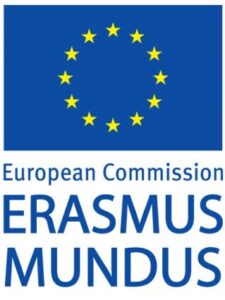By Hamid Khan Wazir
 ISLAMABAD, Pakistan: In what appears to be a significant development, the number of Pakistani students selected for the Erasmus Mundus Joint Master Degree (EMJMD) Scholarship to study in Europe has gone up almost three-fold in the last three years, from 46 in 2017, to 126 for the academic year 2020-21 including 64 men and 62 women.
ISLAMABAD, Pakistan: In what appears to be a significant development, the number of Pakistani students selected for the Erasmus Mundus Joint Master Degree (EMJMD) Scholarship to study in Europe has gone up almost three-fold in the last three years, from 46 in 2017, to 126 for the academic year 2020-21 including 64 men and 62 women.
With 126 scholarships out of a global total of 2,542, Pakistan now ranks third in the world, having moved up one slot from its fourth position in 2019.
A major reason is the awareness campaign launched jointly by the Higher Education Commission (HEC) and the EU mission in Pakistan.
The total number of applications (2,919) from Pakistan is the highest in the world.
The selected students will pursue their studies in 18 leading European Countries.
The Erasmus Mundus programme aims to promote academic and cultural understanding between the European countries and partner countries.
It supports the development of human resources, facilitates international mobility and cooperation, and helps build the capacity of higher education institutions across the world.
The EMJMD programmes encompass a range of subjects of interest to Pakistan, including the circular economy, microwave electronics and optics, international humanitarian action, vaccinology, children’s literature, media and culture, and groundwater and global change, to name a few.
Notwithstanding the prevalent uncertainty due to the COVID-19 pandemic, the HEC is actively engaged in discussions with the EU delegation to facilitate the start of academic activities by the scholarship awardees including their travel arrangements.
Collaboration is also continuing on other programs in higher education and research, in order to bring the quality and standards of education at par with the global standards.
The Erasmus Scholarships are an addition to the scholarships provided directly by the HEC to Pakistani students for study in the leading universities of the world.
The HEC has cooperative agreements with universities and Countries not only on scholarships but also on joint research programs, faculty exchange programmes, transnational education programmes, excellence frameworks, and leadership development programmes.
